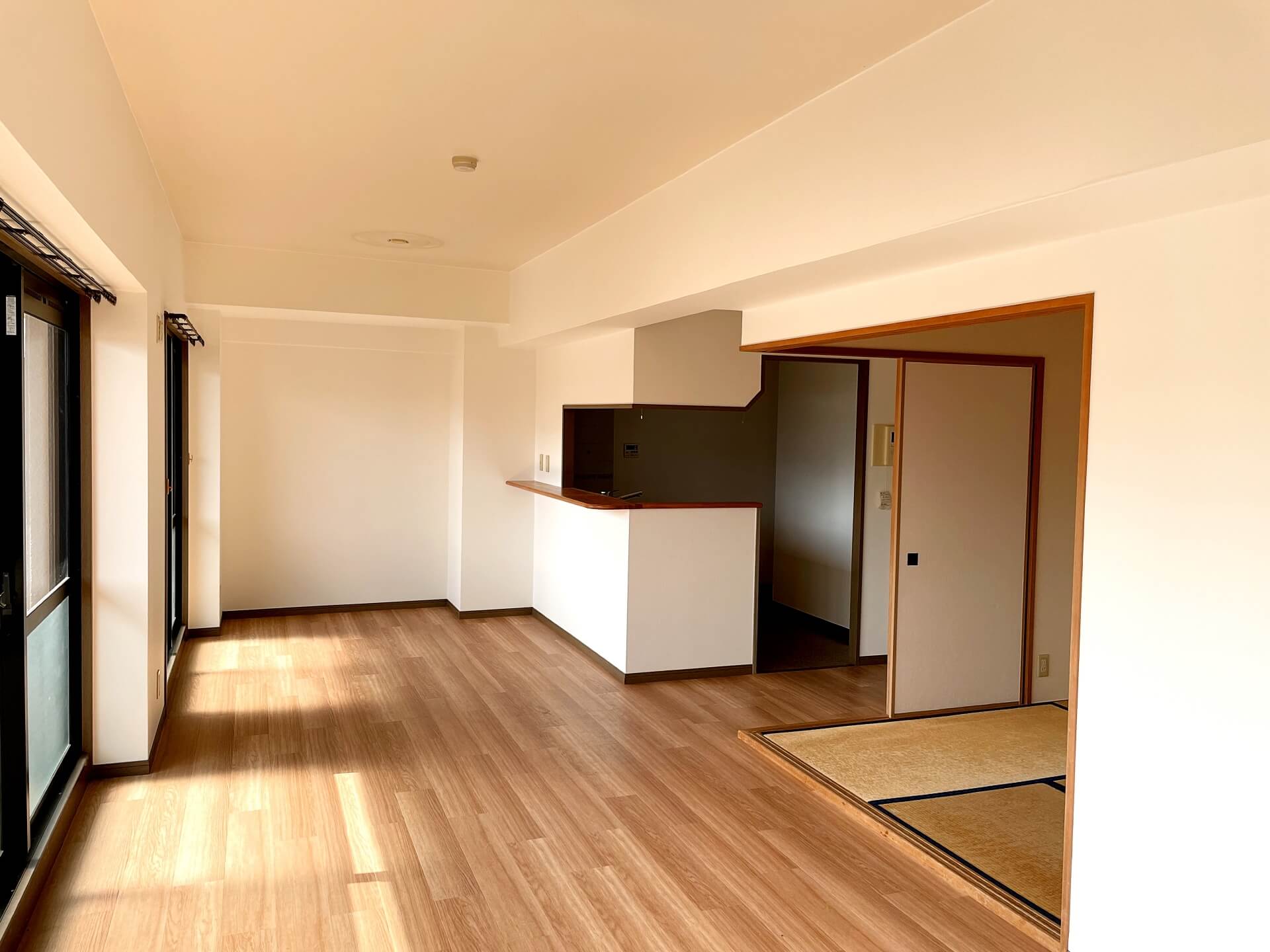Key Points to Successful Investment Apartments in Japan
Key Points for Investment Apartments in Japan

Real estate investment in Japan is an attractive option for investors seeking stable returns. The appeal of apartment investments lies in the sustained demand in densely populated urban areas and the potential for high rental income. Additionally, Japan’s real estate market is relatively stable, with a low risk of asset value decline.
When purchasing an investment apartment, important considerations include location, surrounding environment, and selecting regions with future potential. The condition and age of the property, as well as the reliability of the management company, are also crucial factors. Owning an investment apartment requires maintenance and tenant recruitment, so these aspects should be carefully considered.
The Japanese real estate investment market is open to foreign investors, providing attractive opportunities for international investors. However, since local laws and regulations may differ, it is essential to seek expert advice. While diligent research and consideration are necessary for real estate investment in Japan, the stable profitability and growth prospects make it a beneficial choice for many investors.
Current State of the Investment Apartment Market in Japan

The current state of the investment apartment market in Japan draws attention from both domestic and international investors. In particular, high population density and sustained demand in major urban areas position them as promising investment destinations. High rental demand in city centers and the potential for high returns attract many investors.
Moreover, Japan’s real estate market is relatively stable, with low long-term asset value decline risk, making it an attractive factor for the investment apartment market. However, market conditions vary by region and property, so thorough market research is indispensable for investors.
Conversely, challenges in the investment apartment market include vacancy risk, securing appropriate tenants, and management and maintenance issues. Competition with other properties and local regulatory issues are also critical points for investors to consider.
Entering the investment apartment market under these conditions requires a comprehensive understanding of regional characteristics, demand trends, and property management status. Careful investment based on detailed market research and local expert advice is essential for success.
Tokyo Real Estate Market
The Tokyo real estate market attracts global attention and is one of the most appealing areas for investors. Tokyo has high population density and abundant business opportunities, ensuring steady rental demand. Consequently, the investment apartment market is thriving.
Tokyo is also open to foreign investors, attracting funds from various countries. As an international city, it meets diverse demands. However, challenges include rising property prices and intensifying competition.
Entering the Tokyo real estate market requires detailed analysis of regional demand trends and property location conditions, incorporating local expert advice. Thorough market research and risk assessment are prudent before making investment decisions.
Osaka Real Estate Market
The Osaka real estate market is an attractive investment destination for both domestic and international investors. Osaka is Japan’s third most densely populated city, offering economic vitality, tourist appeal, and convenient transportation, making it advantageous for investors.
High rental demand in certain areas and favorable returns make investment apartments and buildings highly sought after. With corporate headquarters and branches concentrated in Osaka, the accompanying residential demand presents favorable investment opportunities.
However, in the Osaka real estate market, factors like property location, surrounding environment, and selecting regions with future potential remain crucial. Market conditions vary by region, necessitating thorough market research and investment planning based on local expert advice.
Osaka’s real estate market offers diverse opportunities and risks, but diligent research and consideration can lead to stable returns. The market is open to international investors, and appropriate information gathering and expert support make investment activities in Osaka’s real estate market beneficial for many investors.
Other Major Cities’ Markets
In other major cities, areas experiencing population growth centered around Tokyo or with high business and academic demand attract attention. Cities like Osaka and Nagoya, where population inflows continue, rental demand increases in city centers and areas with good transportation access, attracting investor interest. Regional cities, areas with concentrated industries or tourist destinations also present investment opportunities.
However, in regional cities, rental income and asset value appreciation are not as predictable as in city centers, requiring careful consideration. In some regions, vacancy risks and tenant recruitment challenges exist. Therefore, investment in regional cities necessitates consideration of regional characteristics and collaboration with local real estate experts.
Points for Foreigners Purchasing Investment Apartments in Japan
When foreigners purchase investment apartments in Japan, there are several important points to consider. Firstly, while the Japanese real estate investment market is open to foreign investors, different regulations apply for taxes and fees, such as real estate acquisition tax, property tax, and management fees. Consulting tax professionals or lawyers to understand specific costs and procedures is essential.
Additionally, Japanese real estate contracts and laws have unique rules and cultural aspects. Foreign investors must understand contracts, terms, and the rights and obligations of buyers and sellers, with translation and expert advice being crucial. Understanding local rules and customs is also necessary for tenant recruitment and management.
Moreover, foreign investors owning investment apartments should consider future sales and inheritance. Understanding Japanese inheritance laws and real estate market trends is wise to minimize future risks. Thorough research and preparation are indispensable for foreigners purchasing investment apartments in Japan. Detailed planning and consultation with local experts and advisors are keys to success.
Legal Regulations and Procedures
Foreigners acquiring real estate in Japan must follow procedures according to legal regulations such as the Civil Code and the Real Estate Registration Act. Consulting local experts for contract translation, understanding, and performing registration procedures is essential.
Taxes and Fees
Attention to taxes and fees in real estate investment is necessary. In Japan, regulations differ for real estate acquisition tax and property tax. Foreign investors should seek expert advice. Management fees and repair reserve funds should also be considered. Properly understanding costs and planning is crucial.
Choosing an Investment Apartment
Careful selection is necessary when choosing an investment apartment. Firstly, location is paramount. Check if the area is high-demand, such as urban centers, business districts, and areas around universities or hospitals. The condition and age of the property are also important. Newer buildings have lower maintenance costs, while older buildings may be purchased at lower prices.
Furthermore, the reliability of the management company is vital. Ensure proper management for tenant recruitment and maintenance, choosing a trustworthy management company. Rental income is the pillar of investment apartment revenue, so consider the surrounding environment and potential tenants. If taking a loan, examine interest rates and financing conditions. These points should be considered when selecting an investment apartment.

Selecting the Location
One of the most important factors in apartment investment is selecting the location. For example, urban centers or areas with good transportation access typically have high demand. For properties aimed at students or business people, proximity to universities or office districts is desirable. Family-oriented properties should be near schools, parks, and supermarkets.
Identifying regions with future potential is also important. Consider future demand potential based on regional development plans, infrastructure improvements, and surrounding environment development. Checking factors like crime rates and safety also considers tenant safety. Considering these factors holistically, selecting the location is a crucial step for successful investment apartments.
Considering Property Types
When selecting a property, the type of property is an important factor. Apartments, condominiums, and mansions each have unique characteristics.
Apartments are relatively small and provide close contact with tenants, making management easier. Condominiums often have comprehensive common facilities and security, positively influencing rent and occupancy rates. Mansions usually offer extensive facilities and services, targeting families and high-income renters.
Considering the features and demand of each property type, choose the one that fits your investment strategy and desired profitability.
Formulating Investment Strategy
Formulating an appropriate investment strategy is crucial when purchasing an investment apartment.
Firstly, focus on long-term profitability. Real estate investment expects long-term asset value growth, so a long-term investment aiming for stable rental income is preferable over short-term sales. Diversifying investments across multiple properties is also a risk hedge. Owning multiple properties disperses risk, avoiding reliance on a single property.
Additionally, viewing Japan’s real estate market from an international perspective is important. Gathering information from an international viewpoint, considering global economic conditions and foreign investor trends, is vital.
Understanding tax and legal rules is also essential. Japanese real estate investment follows specific tax and legal rules. Understanding these and incorporating appropriate tax strategies and legal risk avoidance measures is crucial.
Lastly, consulting experts is recommended. Expert advice in real estate investment can minimize risks and maximize profitability. Formulating an appropriate investment strategy requires comprehensive information gathering and consideration from various perspectives.
Finding a Reliable Real Estate Agent
Criteria for Selecting an Agent
Finding a reliable real estate agent is crucial when purchasing investment apartments in Japan. Firstly, research reviews and reputation to find agents with proven track records and reliability. Also, check the history and credibility of the real estate company the agent belongs to.
Next, confirm the agent’s ability to communicate effectively. Ensure they can communicate smoothly in Japanese and have support systems for foreign investors. Timely information provision and troubleshooting support are important.
Additionally, choose agents knowledgeable about real estate market trends and investment apartments. Agents with extensive knowledge can provide appropriate advice and the latest information.
Lastly, thoroughly review contract terms, including fees, to ensure transparency and avoid unclear transactions. Selecting agents with transparent contract terms and fair fees is vital. Considering these points, choosing a reliable real estate agent is the first step toward successful investment apartment transactions in Japan.
Communication with Agents

Effective communication with agents is crucial when purchasing investment apartments in Japan.
Firstly, ensure the agent can communicate fluently in Japanese. For foreign investors, understanding explanations and contract terms in Japanese is important. Check if the agent can also communicate in English or other languages.
Choosing agents who can provide timely information and respond to questions promptly is essential. Timely information sharing and careful answers to questions are important in investment apartment transactions. Confirming smooth communication with agents in advance is recommended.
Furthermore, check if the agent has experience and an international mindset for supporting foreign investors. Ensuring the agent’s support systems for foreign investors is vital.
In summary, effective communication with agents plays a significant role in investment apartment transactions in Japan. Choosing agents who provide friendly and accurate support for foreign investors leads to success.
Conclusion
Real estate investment is crucial for investors seeking stable returns. Apartment investments in Japan are attractive due to sustained demand in urban areas and high rental income, along with asset value stability. Selecting investment apartments involves various factors such as location, property condition, and management company reliability.
The Japanese real estate market offers opportunities for foreign investors, but attention to regional laws and regulations is necessary. Careful research and expert advice are recommended for considering investment opportunities in Japan’s real estate market.
